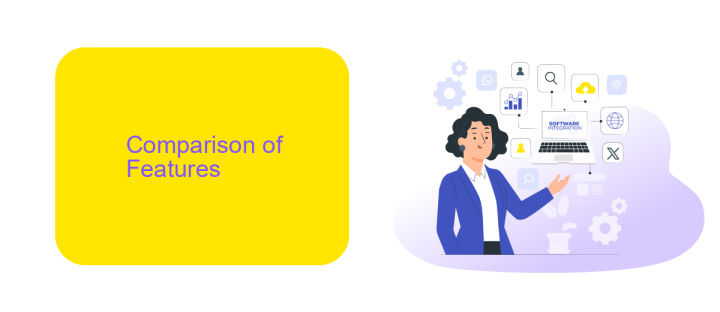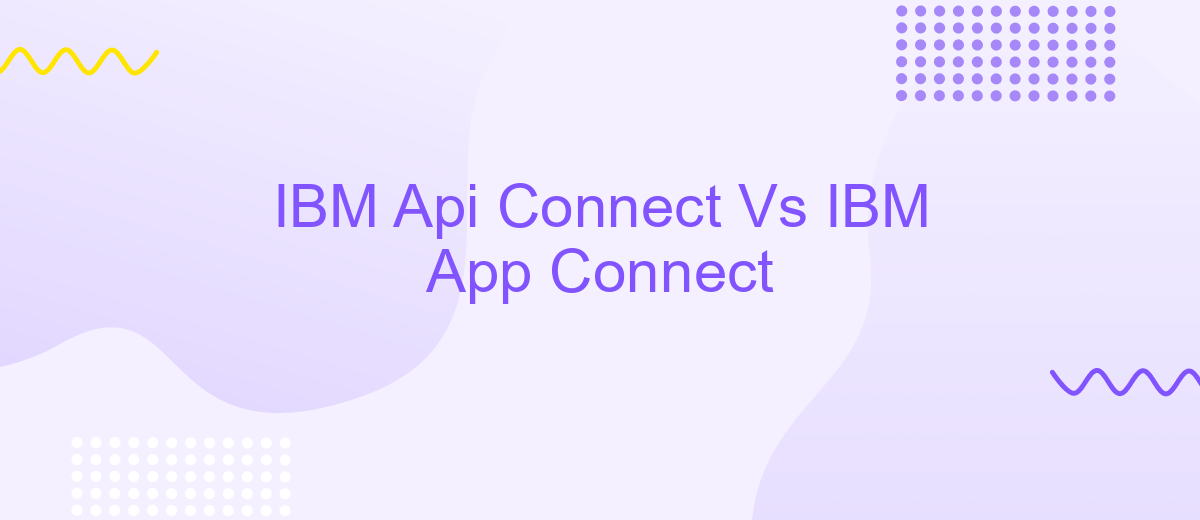IBM Api Connect Vs IBM App Connect
In the realm of enterprise integration and API management, IBM offers two powerful tools: IBM API Connect and IBM App Connect. While both solutions aim to streamline connectivity and enhance digital transformation, they serve distinct purposes and cater to different aspects of integration. This article delves into the key differences, functionalities, and use cases of IBM API Connect versus IBM App Connect.
Introduction
In the rapidly evolving landscape of enterprise technology, integration platforms play a crucial role in streamlining business processes and enhancing connectivity between various applications and services. IBM offers two prominent solutions in this domain: IBM API Connect and IBM App Connect. Each of these platforms serves distinct purposes and caters to different integration needs, making it essential to understand their unique features and benefits.
- IBM API Connect: Focuses on API lifecycle management, providing tools for creating, securing, and analyzing APIs.
- IBM App Connect: Specializes in application integration, enabling seamless data flow between diverse applications and systems.
- ApiX-Drive: An additional tool that simplifies the integration process, offering a user-friendly interface for connecting various services without extensive coding knowledge.
Choosing the right integration platform depends on your specific business requirements, whether you need robust API management or efficient application integration. By exploring the capabilities of IBM API Connect, IBM App Connect, and supplementary tools like ApiX-Drive, organizations can make informed decisions to optimize their integration strategies and drive digital transformation.
Comparison of Features

IBM API Connect and IBM App Connect both offer robust solutions for integrating applications and services, but they cater to different needs. API Connect focuses on creating, securing, and managing APIs, making it ideal for developers who need to expose and control access to backend services. It provides comprehensive analytics, strong security features, and lifecycle management capabilities that ensure APIs are reliable and scalable. This makes API Connect a powerful tool for enterprises looking to streamline their API strategy and governance.
On the other hand, IBM App Connect is designed for seamless integration of various applications and data sources without the need for extensive coding. It offers an intuitive interface for building integrations, making it accessible to both technical and non-technical users. App Connect supports a wide range of connectors and pre-built templates, simplifying the process of connecting disparate systems. Additionally, services like ApiX-Drive can complement IBM App Connect by providing additional integration capabilities, ensuring that businesses can automate workflows and enhance productivity with minimal effort.
Use Cases

IBM API Connect and IBM App Connect serve different yet complementary purposes in the realm of integration and API management. Both tools are designed to streamline processes and enhance connectivity across various applications and services.
- API Management: IBM API Connect is ideal for organizations looking to create, secure, and manage APIs. It provides robust features for API lifecycle management, including analytics and monitoring.
- Application Integration: IBM App Connect excels in connecting disparate applications and automating workflows. It allows users to integrate cloud and on-premises applications without needing extensive coding knowledge.
- Hybrid Environments: Both tools can be used in hybrid cloud environments, providing flexibility and scalability for businesses with complex IT ecosystems.
- Third-Party Integration: Services like ApiX-Drive can be used alongside IBM App Connect to further simplify the integration process, offering pre-built connectors for various third-party applications.
In summary, IBM API Connect is best suited for API lifecycle management, while IBM App Connect focuses on seamless application integration. Utilizing both tools in conjunction with services like ApiX-Drive can significantly enhance your organization's integration capabilities.
Pricing and Licensing

When it comes to pricing and licensing, IBM Api Connect and IBM App Connect offer different models tailored to various business needs. IBM Api Connect typically follows a subscription-based model, with costs varying based on the number of API calls and the level of support required. This allows businesses to scale their expenses according to their usage, making it a flexible option for growing enterprises.
On the other hand, IBM App Connect also offers a subscription model but focuses on the number of integrations and the complexity of workflows. This makes it suitable for businesses that need robust data integration solutions without worrying about the volume of API calls. The pricing tiers are designed to accommodate both small businesses and large enterprises, ensuring that all users can find a plan that fits their requirements.
- IBM Api Connect: Subscription-based, cost varies by API calls and support level.
- IBM App Connect: Subscription-based, cost varies by integration complexity and workflow needs.
- Both services offer flexible plans for different business sizes.
Additionally, for those looking to streamline and automate integrations, services like ApiX-Drive can be a valuable complement to IBM's offerings. ApiX-Drive specializes in connecting various applications and services, providing an extra layer of flexibility and efficiency. This can be particularly useful for businesses aiming to optimize their integration processes without significant overhead.
Conclusion
In conclusion, IBM API Connect and IBM App Connect each offer powerful tools for different aspects of integration and API management. IBM API Connect excels in providing robust API lifecycle management, security, and scalability, making it ideal for organizations that need to manage and expose APIs efficiently. On the other hand, IBM App Connect focuses on simplifying the integration process between various applications and data sources, making it a perfect choice for businesses looking to streamline their workflows and automate processes.
When choosing between these two solutions, it's crucial to consider your specific needs and objectives. For instance, if your primary goal is to manage APIs with a high level of control and security, IBM API Connect would be the better option. However, if your focus is on integrating disparate systems and automating tasks, IBM App Connect would be more suitable. Additionally, services like ApiX-Drive can further enhance your integration capabilities by providing an easy-to-use platform for connecting various applications and automating workflows, complementing the features offered by both IBM solutions.
- Automate the work of an online store or landing
- Empower through integration
- Don't spend money on programmers and integrators
- Save time by automating routine tasks
FAQ
What is the primary difference between IBM API Connect and IBM App Connect?
Can I use IBM API Connect and IBM App Connect together?
Is coding knowledge required to use IBM App Connect?
How can I automate integrations between different applications?
What are the deployment options for IBM API Connect?
Time is the most valuable resource for business today. Almost half of it is wasted on routine tasks. Your employees are constantly forced to perform monotonous tasks that are difficult to classify as important and specialized. You can leave everything as it is by hiring additional employees, or you can automate most of the business processes using the ApiX-Drive online connector to get rid of unnecessary time and money expenses once and for all. The choice is yours!


